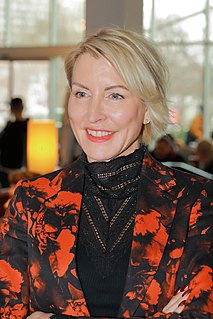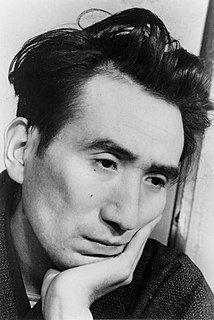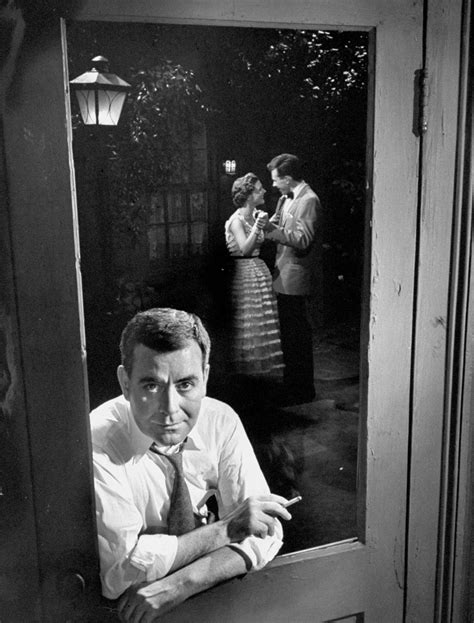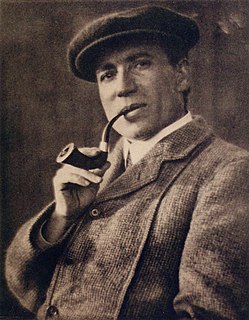A Quote by Johannes Kepler
We do not ask what hope of gain makes a little bird warble, since we know that it takes delight in singing because it is for that very singing that the bird was made, so there is no need to ask why the human mind undertakes such toil in seeking out these secrets of the heavens. ... And just as other animals, and the human body, are sustained by food and drink, so the very spirit of Man, which is something distinct from Man, is nourished, is increased, and in a sense grows up on this diet of knowledge, and is more like the dead than the living if it is touched by no desire for these things.
Quote Topics
Animals
Ask
Because
Bird
Body
Dead
Delight
Desire
Diet
Distinct
Drink
Food
Food And Drink
Gain
Grows
Heavens
Hope
Human
Human Body
Human Mind
Increased
Just
Know
Knowledge
Like
Little
Living
Made
Makes
Man
Mind
More
Need
No Desire
Other
Out
Secrets
Seeking
Sense
Since
Singing
Something
Spirit
Sustained
Takes
Than
Things
Toil
Touched
Up
Very
Which
Why
Related Quotes
Desire , to know why, and how, CURIOSITY; such as is in no living creature but Man ; so that Man is distinguished, not only by his Reason; but also by this singular Passion from other Animals ; in whom the appetite of food, and other pleasures of Sense, by predominance, take away the care of knowing causes; which is a Lust of the mind, that by a perseverance of delight in the continual and indefatigable generation of Knowledge, exceedeth the short vehemence of any carnal Pleasure.
Each of us has something within us which won't be denied, even if it makes us scream aloud to die. We are what we are, that's all. Like the old Celtic legend of the bird with the thorn in its breast, singing its heart out and dying. Because it has to, its self-knowledge can't affect or change the outcome, can it? Everyone singing his own little song, convinced it's the most wonderful song the world has ever heard. Don't you see? We create our own thorns, and never stop to count the cost. All we can do is suffer the pain, and tell ourselves it was well worth it.
Mother, recently I have discovered the one way in which human beings differ completely from other animals. Man has, I know, language, knowledge, principles, and social order, but don't all the other animals have them too, granted the difference of degree? Perhaps the animals even have religions. Man boasts of being the lord of all creation, but it would seem as if essentially he does not differ in the least from other animals. But, Mother, there was one way I thought of. Perhaps you won't understand. It's a faculty absolutely unique to man - having secrets. Can you see what I mean?
There is no other place where the heart should be so free as before the mercy seat. There, you can talk out your very soul, for that is the best prayer that you can present. Do not ask for what some tell you that you should ask for, but for that which you feel the need of, that which the Holy Spirit has made you to hunger and to thirst for, you ask for that.
I believe very deeply in the human spirit, and I have a sense of awe about it. I look around and ask, 'What makes the difference? What is it?' I've known people the world has thrown everything at - to discourage them, to kill them, to break their spirit. And yet something about them retains a dignity. They face life and they don't ask quarters.
There was an idea that God created man different from other animals, because man was rational and animals had drives and instincts. That idea of a rational man that was specially created went out the window when Darwin showed that we evolved from animal ancestors, that we have instincts, much as do animals, and that our instincts are very important. It was a much more sophisticated, nuanced, and rich view of the human mind.
Aristotle taught that stars are made of a different matter than the four earthly elements— a quintessence— that also happens to be what the human psyche is made of. Which is why man’s spirit corresponds to the stars. Perhaps that’s not a very scientific view, but I do like the idea that there’s a little starlight in each of us.
When on a summer's morn I wake,
And open my two eyes,
Out to the clear, born-singing rills
My bird-like spirit flies.
To hear the Blackbird, Cuckoo, Thrush,
Or any bird in song;
And common leaves that hum all day
Without a throat or tongue.
And when Time strikes the hour for sleep,
Back in my room alone,
My heart has many a sweet bird's song -
And one that's all my own.
I think as you grow up and you see things which are around you and you ask questions and you hear the answers, your situation becomes more and more of a puzzle. Now, why is it like this, why are things like this and since writing is one way in which one can ask this questions and try to find these answers, it seems to me a very natural thing to do, especially as it meant stories which I always found moving, almost unbearably necessary.



































